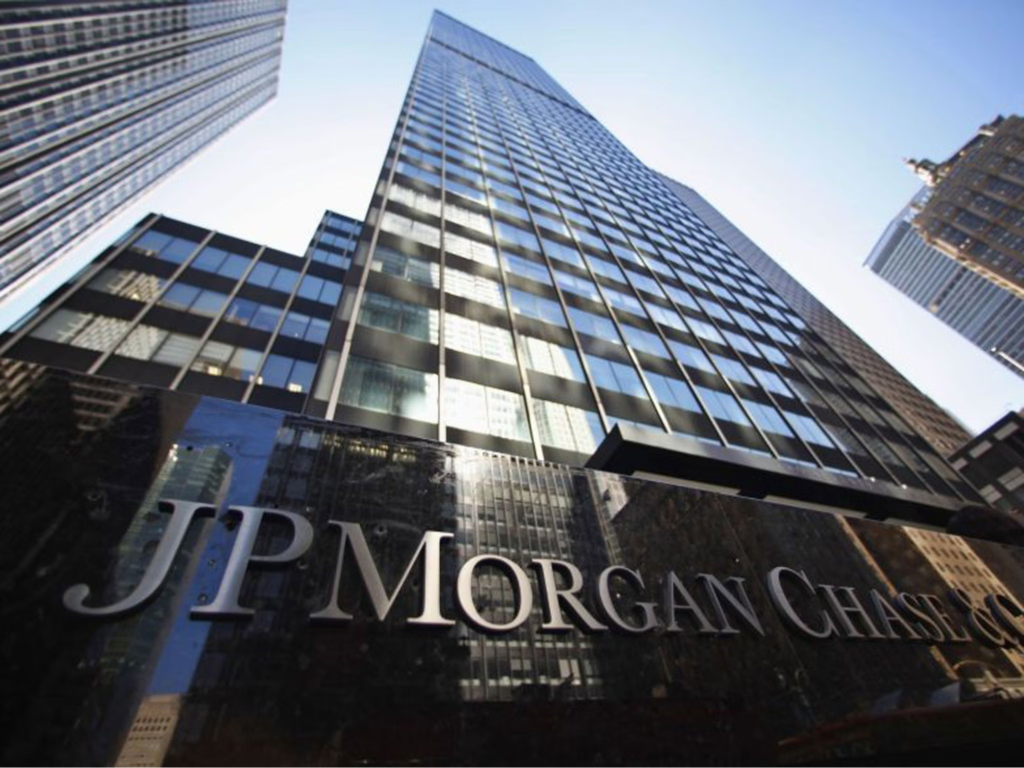

Now is the time when it’s imperative to balance financial prosperity with environmental stewardship. One company that shows a steadfast commitment to a sustainable future is JP Morgan.
But take a moment to consider JP Morgan’s legacy and historical prowess — by 1900, JP Morgan (the person, not the company) held sway over 50% of the US railroads. This control extended to 24 separate companies, collectively operating a network of 100,000 miles of track. This sets an impressive backdrop for exploring the company’s role in the economy and the global market.
JP Morgan’s journey is a dynamic narrative that blends past eminence with contemporary endeavors. Let’s see how it established tracks of innovation and responsibility.
Previous goals and areas of focus
One of Morgan’s notable contributions was his involvement in financing and reorganizing the railroad industry. He facilitated agreements between major railroads to prevent destructive competition and rate wars. He also orchestrated major industrial consolidations, such as the merger of Edison General Electric and Thomson-Houston Electric Company to form General Electric and the formation of the United States Steel Corporation.
Fast forward to the creation of JPMorgan Chase & Co., the early 2000s showcased its adaptability to the changing landscape of finance. The main development was the bank’s engagement in technology and innovation, which was followed by eco-friendly initiatives. Notably, the company took a step forward by opening its first environmentally friendly branch in Denver in 2007. Overall, JP Morgan’s operations were far from green in the past, but the more recent moves were marked by a different environmental consciousness.
JP Morgan’s green revolution

The transformation to a greener approach is reflected in JP Morgan’s comprehensive Sustainable Development Target, which outlines the bank’s mission with three pivotal areas.
The first pillar, Green, is about JP Morgan’s dedication to fostering climate action, clean energy adoption, and sustainable resource management. They are accelerating the implementation of cleaner energy solutions and facilitating the shift toward a low-carbon economy. And this initiative will be awarded $1 trillion by the close of 2030.
The second area of focus, “Development Finance,” highlights the bank’s role in supporting socioeconomic advancement within emerging economies. This is done through mobilizing capital to advance the United Nations Sustainable Development Goals. The third pillar, “Community Development,” underscores JP Morgan’s dedication to economic inclusion and social equity in developed markets.
Marisa Buchanan, JPMorgan’s global head of sustainability, aptly summarized the company’s approach by stating, “This is about us not just saying the right thing, but actually doing the right thing.”
Leading the industry
The bank’s recent announcement in May, regarding its commitment to purchase $200 million of carbon dioxide removal, has made waves and shed light on its leadership role within the sector. While the investment may appear modest in comparison to the bank’s size, it’s one of the most substantial corporate purchases of carbon removal in the emerging industry. At the forefront of this decision is Brian DiMarino, the managing director and head of operational sustainability at JP Morgan.
JP Morgan Securities Services has recently unveiled a solution that redefines sustainable investing for institutional investors. This tool is available through Fusion and JP Morgan and introduces Sustainable Investment Data Solutions that are powered by leading data providers like Bloomberg, Equileap, FactSet, ISS ESG, MSCI, RepRisk, Revelio Labs, S&P Global, and Sustainalytics.

Sustainable investment approach to bridge profits and planet
The concept of sustainable investing doesn’t simply exist in the realm of noble intentions. Think of it more as a compelling strategy that bridges profits and the planet. Institutions like JP Morgan demonstrate that responsible investment practices aren’t just about doing good; they’re also inherently profitable.
The lesson here is that financial success and environmental stewardship are not mutually exclusive. When you integrate environmental, social, and governance factors into investment decisions, you align with companies that are more likely to thrive in the long term, thanks to their sustainable practices.
In fact, studies have shown that companies with strong ESG performance often outperform their peers. Reuters and ESG Book even did an experiment. Over a span from January 2017 through April 2022, a portfolio of European stocks favoring ESG leaders achieved an average annual return higher than its unweighted benchmark by 1.59%. Meanwhile, the Asia-Pacific region followed closely behind with 1.02%, and the North American portfolio outperformed its benchmark by 0.17%.
Real-world impact of JP Morgan’s commitment to a greener future

One practical case that shows JP Morgan’s impact is its instrumental role as an advisor in a significant M&A deal with ENEOS Corporation, Japan’s largest oil and gas company. The transaction saw ENEOS acquire Japan Renewable Energy Corporation (JRE), a leading developer of solar and wind projects in the country. The deal supports ENEOS’ ambitious sustainability targets, including achieving net-zero emissions by 2040.
Another example is JP Morgan serving as the Joint Lead Arranger to finance the Vineyard Wind project. This initiative marks the United States’ first offshore wind farm capable of generating utility-scale power. Situated off the coast of Martha’s Vineyard, the project is expected to provide energy to around 400,000 households and businesses in Massachusetts.
Conclusion
JP Morgan’s green revolution signifies the financial giant’s commitment to environmentally sustainable practices and investments. It aims to support the transition toward a greener economy by funding renewable energy projects, advancing sustainable technologies, and incorporating environmental considerations into its business operations. It hasn’t always been the case, but this is a glimpse into the future ahead.
Moreover, it’s worth noting that you can trade JP Morgan on the Binomo platform, which is specifically available for VIP traders. Make sure to consider upgrading your status and exploring this trading opportunity!
Sources:
History of our firm, JPMorgan Chase
Sustainable investing, JP Morgan Asset Management
Positive ESG performance improves returns globally, research shows, Reuters
The impact of sustainable investing: a multidisciplinary review, Wiley Online Library









